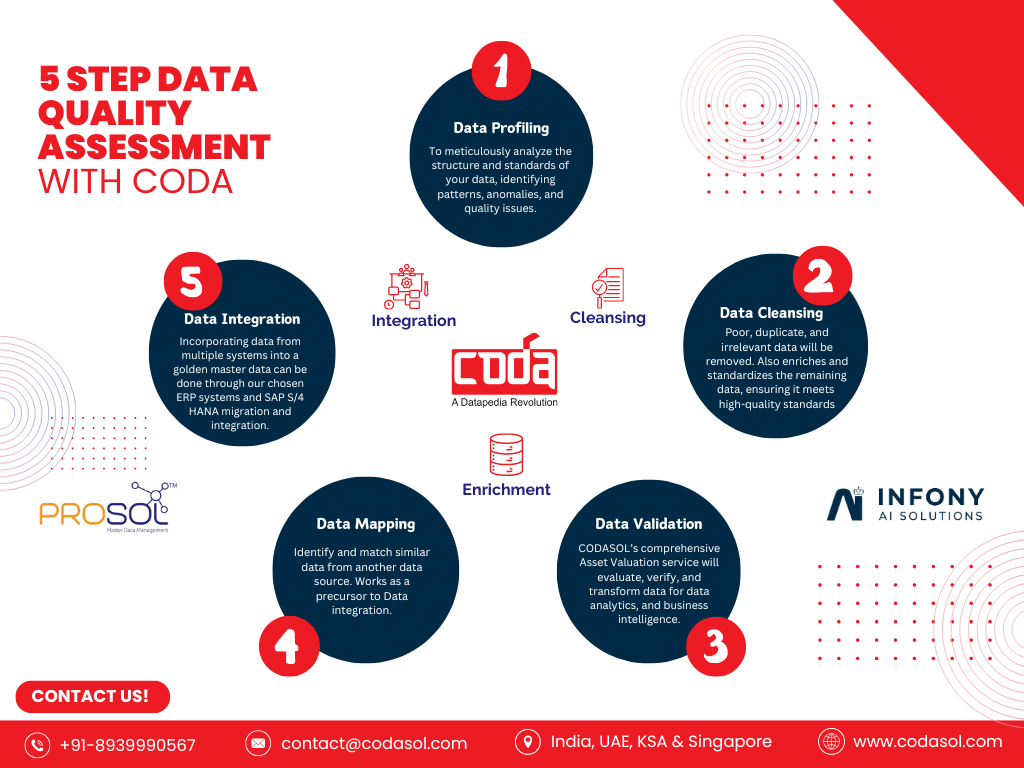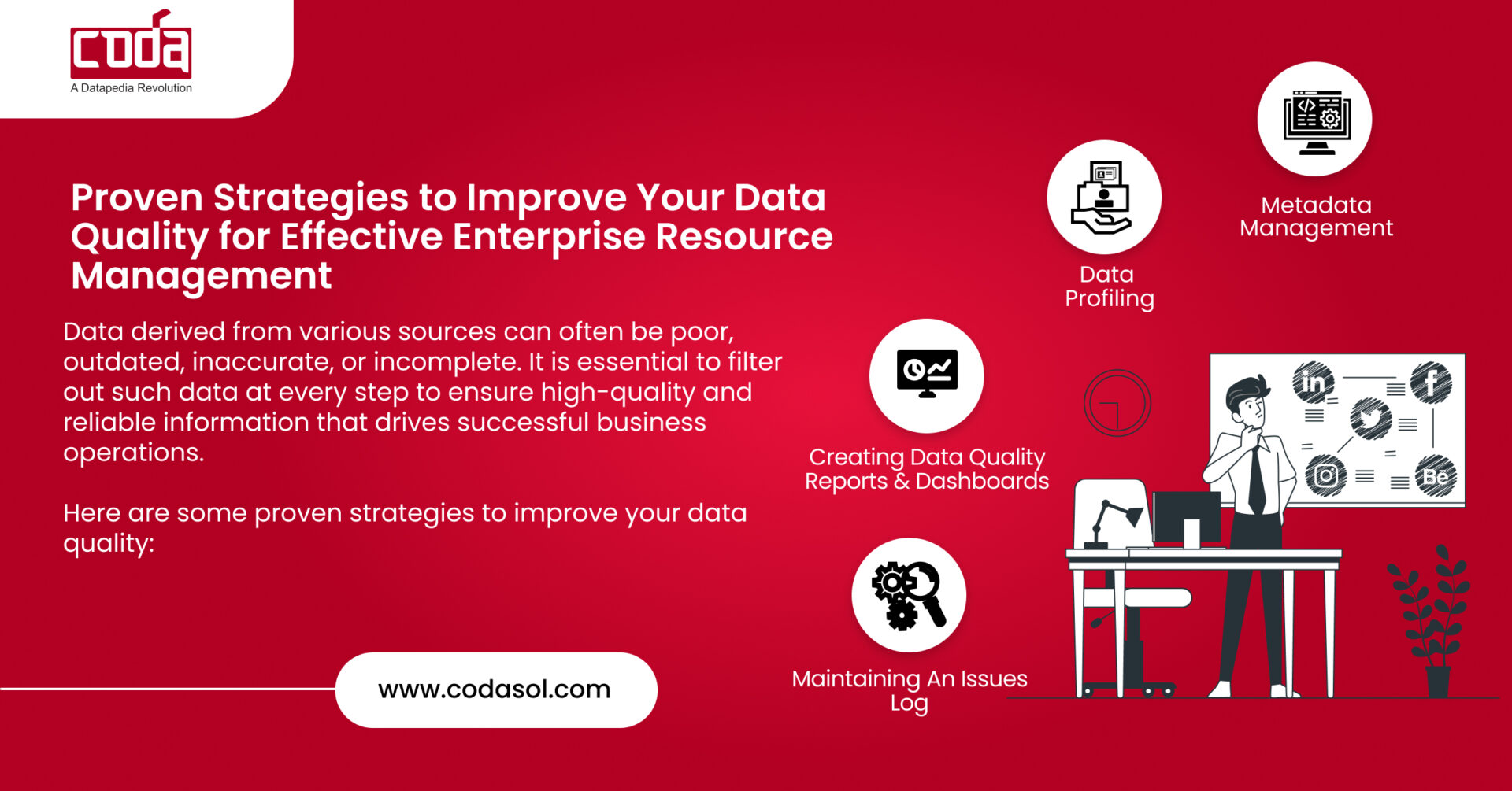Data quality issues are common challenges in enterprise resource management, and it is critical to manage data without flaws. In this blog, we will explore effective ways to overcome data quality issues and understand why cloud migration alone won’t resolve these problems.
Metadata Management
Metadata, or “data about data,” provides detailed information about data, enabling organizations to locate the exact data needed. Effective metadata management is essential for rectifying major data quality issues.
Data Profiling
Data profiling involves examining and analyzing data to understand its structure and nature, ensuring its consistency and accuracy. The output is displayed statistically, such as numbers or values in columns. This step is crucial before data processing and analytics.
Create Data Quality Reports & Dashboards
Data quality dashboards assess the quality of data sets and sources, identify and track data quality issues, and display these issues to stakeholders, creating a comprehensive quality report.
Set Quality Alerts
After setting up reports, the next step is to implement threshold-based alerts. These alerts automatically generate notifications to highlight the urgency and priority of identified issues.
Create an Issues Log
An issues log records all activities and negative feedback for future reference, serving as a preventive measure for better master data management.
To build upon these foundational strategies, it’s important to delve deeper into more advanced techniques that can significantly enhance data quality across the organization. Below, we discuss additional methods that can be employed to further improve data quality, ensuring your enterprise data is always accurate, consistent, and reliable.
How to Improve Data Quality
Data Quality Assessment
Data quality assessment aims to standardize data by examining its accuracy, relevance, completeness, and consistency throughout the data lifecycle. Techniques such as data profiling, cleansing, and validation are essential in this process.

Establish Data Governance Policies
A clear data governance framework ensures scalability, accuracy, usability, and integrity in enterprise data management. This includes assigning roles and responsibilities to enhance data stewardship and custodianship.
Eliminate Data Silos
Data silos, or isolated information accessible only to specific departments, hinder data integration and synchronization. Eliminating these silos improves data quality and facilitates seamless data exchange.
Data Validation and Standardization
Data validation verifies data for accuracy, consistency, completeness, and reliability, helping to resolve issues identified during data cleansing. Data standardization transforms data into a common format for improved processing.
Key Takeaways
Managing poor-quality data from multiple sources is inevitable, but it can be effectively handled. The key is to identify and eradicate errors. Data silos are a significant barrier to data synchronization and relevance. Overcoming this obstacle through data integration, along with effective metadata management, data profiling, and cleansing, provides robust solutions for data quality issues.
Struggling with bad data interpretation? Partner with us and leverage our software, Prosol to enhance your data.

